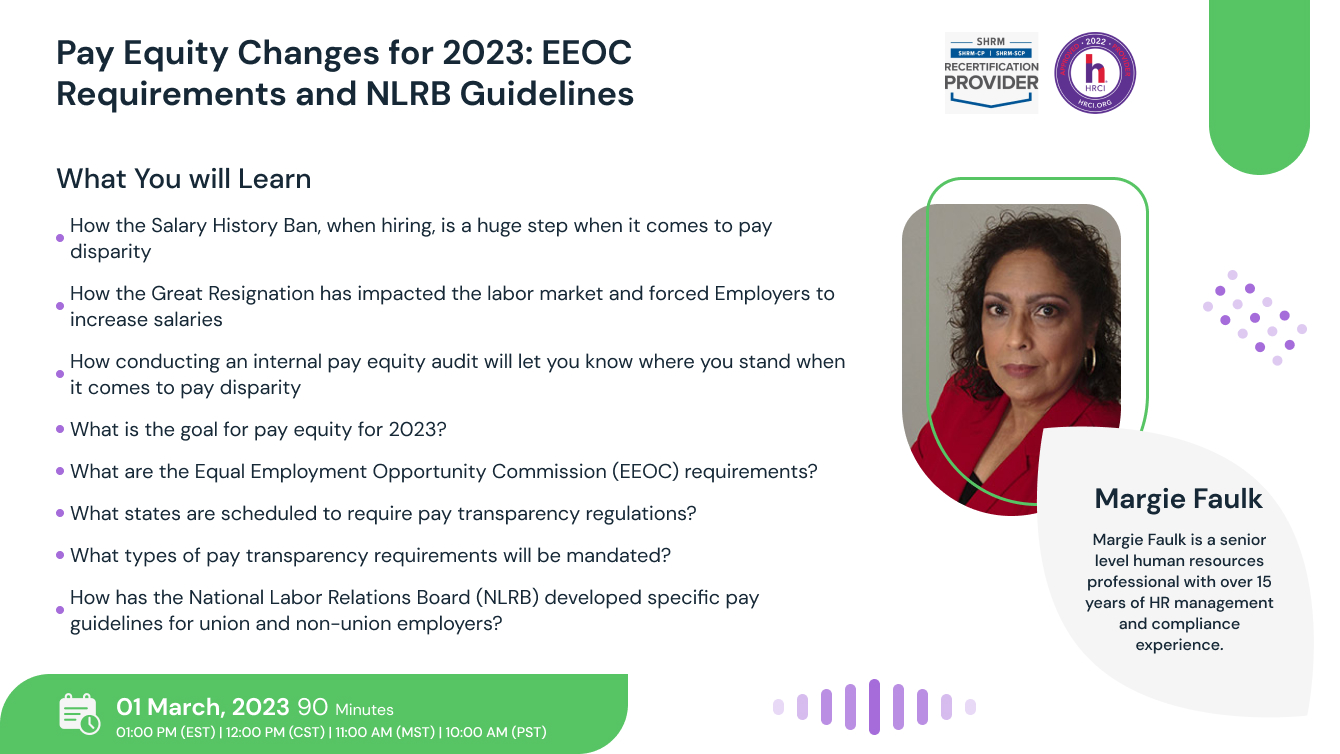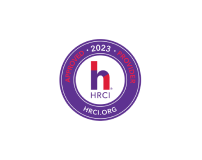Pay Equity Changes for 2023: What Employers Need to Know to be Compliant
Despite civil rights, laws and advancements in women’s economic status, wage discrimination still persists in every state and virtually every occupation. Women who work full time, year-round take home about 83 cents for every dollar that non-Hispanic, white men earn. Over a career—defined as 47 years of full-time work—women’s total estimated earnings loss compared with men is $700,000 for a high school graduate, $1.2 million for a college graduate, and $2 million for a professional school graduate.
A pay gap also persists across all racial and ethnic groups. Women of color experience wider pay gaps—among full-time workers in 2020, Black and Latina women made, respectively, 64 cents and 57 cents on the dollar as compared to non-Hispanic white men. The overall pay gap has only decreased by a nickel during the 21st century and, unless action is taken, the pay gap between men’s and women’s earnings will not close until 2093.
Getting to the root cause of a pay gap involves:
-Organizing an interdisciplinary team that includes representatives from compensation, total rewards, diversity and inclusion, talent acquisition, performance management, training and development, and in-house and outside legal counsel.
-Establishing legal privilege over the assessment to protect it from disclosure.
-Looking for patterns.
Join us this March to learn about the EEOC requirements and the NLRB guidelines for pay equity in 2023. You will also receive a FREE customized compliance tool to develop a better understanding. Register now!
Get Answers to
-What is the goal for pay equity for 2023?
-What are the Equal Employment Opportunity Commission (EEOC) requirements?
-What are the pros and cons to establish pay equity policies?
-How has the National Labor Relations Board (NLRB) developed specific pay guidelines for union and non-union employers?
-What states are scheduled to require pay transparency regulations?
-What types of pay transparency requirements will be mandated?
-What do Employers need to do to become compliant with the Pay Equity requirements?
-How will pay equity enhance your retention of valuable employees?
-What does pay transparency look like in job postings?
-What best practices can be initiated to ensure employees that you take pay equity seriously?
What You will Learn
-How the Salary History Ban, when hiring, is a huge step when it comes to pay disparity
-How the Great Resignation has impacted the labor market and forced Employers to increase salaries
-How conducting an internal pay equity audit will let you know where you stand when it comes to pay disparity
Why You Should Attend
The pay gap between male and female executives at U.S. companies expanded during the pandemic after years of improvement, according to a new analysis by financial research firm Morningstar.
In 2020, the first year of the pandemic and the most recent year for which pay-disclosure data is available for publicly traded companies, the gender pay gap in the C-suite became wider, "a reversal of the narrowing that occurred between 2015 and 2019."
Joining this session will help Employers become more compliant with the pay equity guidelines to mitigate pay disparity in 2023.
Who will Benefit
-Business Owners
-Company Leadership
-Compliance professionals
-Payroll Administrators
-HR Professionals
-CEO
-Risk Managers
-Compliance Officers
-Privacy Officers
-Operations Directors
-Information Systems Managers
-Medical Office Managers
-Compliance Professionals
-Managers
-Supervisors
-Employers in all industries

Margie Faulk
Margie Faulk is a senior level human resources professional with over 15 years of HR management and compliance experience. A current Compliance Advisor for HR Compliance Solutions, LLC, Margie, has worked as an HR Compliance advisor for major corporations and small businesses in the small, large, private, public, Non-profit sectors and International compliance. Margie has provided small to large businesses with risk management strategies that protect companies and reduces potential workplace fines and penalties from violation of employment regulations. Margie is bilingual (Spanish) fluent and Bi-cultural. Margie’s area of expertise includes Criminal Background Screening Policies and auditing, I-9 document correction and storage compliance, Immigration compliance, employee handbook development, policy development, sexual harassment investigations/certified training, SOX regulations, payroll compliance, compliance consulting, monitoring US-based federal, state and local regulations, employee relations issues, internal investigations, HR management, compliance consulting, internal/external audits, and performance management. Margie’s unique training philosophy includes providing free customized tools for all attendees. These tools are customized and have been proven to be part an effective risk management strategy. Some of the customized tools include the I-9 Self Audit. Correction and Storage program, Ban the Box Decision Matrix Policy that Employers can provide in a dispute for allegations, Family Medical Leave Act (FMLA) Compliance Guide, Drug-Free Workplace Volatile Termination E-Book and other compliance program tools when attendees register and attend Margie’s trainings. Margie holds professional human resources certification (PHR) from the HR Certification Institution (HRCI) and SHRM-CP certification from the Society for Human Resources Management. Margie is a member of the Society of Corporate Compliance & Ethics (SCCE).
Standeagle Webinar Certification - Standeagle rewards you with Standeagle Achievement Certification for unlocking and attending this webinar. It is to acknowledge your participation in this training session and to add more to your professional score.
Standeagle Courses and Webinars or any Education published "Articles & Materials" strictly follows the standards and guidelines of the Professional Credit / CEU Providers and Well Researched before publishment.
Standeagle doesn't support any Fake - News, Articles, or Compliance updates; Our Industry Experts are highly verified and recognized, and their Pre-publishment is verified via our experts and fact-checkers.

ACCREDITATIONS


